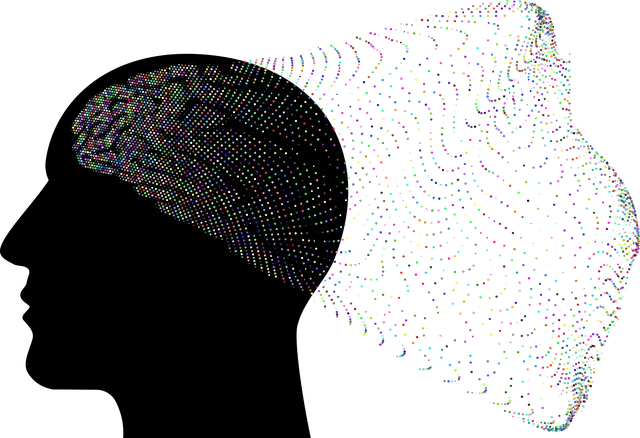Centennial Kaiser Permanente employs a data-driven approach to evaluate its mental wellness programs, tracking key well-being metrics like conflict resolution and emotional regulation beyond satisfaction ratings. This multi-faceted process leverages a robust data system to capture client journeys, service utilization rates, and the impact of specific interventions. By analyzing this data, the organization ensures high-quality care, implements evidence-based practices, improves program reach, and enhances risk assessment for mental health professionals, ultimately aiming to better serve clients' mental health needs through continuous evolution.
Mental wellness program evaluations are crucial for measuring the effectiveness of initiatives like those offered by Centennial Kaiser Permanente. This article explores key evaluation methods, focusing on metrics, data collection, and impact assessment. We delve into how Centennial’s data-driven approach has enabled them to enhance their mental health services, specifically examining the number of beneficiaries and improvements in patient outcomes. By understanding these evaluation techniques, organizations can navigate the landscape of mental wellness support, ensuring resources are allocated optimally.
- Understanding Evaluation Metrics for Mental Wellness Programs
- The Role of Data Collection in Assessing Kaiser Permanente's Services
- Measuring Impact and Effectiveness: A Case Study Using Centennial Data
Understanding Evaluation Metrics for Mental Wellness Programs

Evaluation metrics play a pivotal role in assessing the effectiveness of mental wellness programs, such as those offered by Centennial Kaiser Permanente. These metrics go beyond simple satisfaction ratings to capture key aspects of client well-being. By examining outcomes related to conflict resolution techniques, resilience building, and emotional regulation, program managers can gain valuable insights into their services’ impact.
For instance, tracking improvements in clients’ ability to manage and resolve conflicts, build coping mechanisms for stressful situations, and regulate their emotions over time provides a comprehensive view of mental health progress. This data-driven approach allows Centennial Kaiser Permanente to continuously improve its offerings, ensuring that the programs meet and exceed expected outcomes, ultimately enhancing the overall well-being of those seeking support.
The Role of Data Collection in Assessing Kaiser Permanente's Services

The evaluation of mental wellness programs is a multifaceted process, and data collection plays a pivotal role in understanding the effectiveness of services provided by organizations like Centennial Kaiser Permanente. By gathering comprehensive data, researchers and practitioners can gain valuable insights into various aspects of mental health care delivery. This includes assessing client demographics, service utilization rates, and the impact of specific interventions, such as Stress Reduction Methods and Trauma Support Services.
At Centennial Kaiser Permanente, a systematic approach to data collection enables the mental health professionals to track key performance indicators (KPIs) and measure treatment outcomes. The organization’s robust system captures information on the Centennial Kaiser Permanente mental health services number, allowing for a detailed analysis of client journeys. This data is crucial for identifying areas of improvement, ensuring high-quality care, and implementing evidence-based practices. Moreover, regular risk assessments (Risk Assessment for Mental Health Professionals) are conducted to monitor client safety and guide clinical decisions, contributing to the overall success of the mental wellness program.
Measuring Impact and Effectiveness: A Case Study Using Centennial Data

Evaluating the impact and effectiveness of mental wellness programs is paramount to understanding their true value. One innovative approach involves analyzing Centennial data from Kaiser Permanente, a leading healthcare provider known for its comprehensive mental health services. By examining the number of clients utilizing these services over time, researchers can gauge program reach and popularity. Additionally, tracking client demographics and service utilization patterns provides insights into the program’s appeal across different populations.
This case study method offers several advantages. First, it leverages existing data infrastructure, streamlining the evaluation process. Second, it allows for a comparative analysis against national trends, ensuring the program aligns with or surpasses industry standards. Furthermore, by delving into communication strategies employed and positive thinking trends among participants, researchers can identify key factors contributing to successful outcomes. This comprehensive approach complements risk assessment for mental health professionals, providing a holistic picture of program effectiveness and areas for improvement.
Mental wellness program evaluations are vital for improving and refining services, ensuring positive outcomes for individuals. As seen with Kaiser Permanente’s approach using Centennial data, a comprehensive evaluation framework that includes metric understanding, strategic data collection, and thorough case study analysis can effectively measure the impact of mental health services. By focusing on key performance indicators and leveraging data-driven insights, organizations like Kaiser Permanente can enhance service quality and accessibility, ultimately benefiting those seeking mental health support. This methodical evaluation process is a game-changer in the realm of mental wellness, enabling continuous improvement and fostering better communities.




